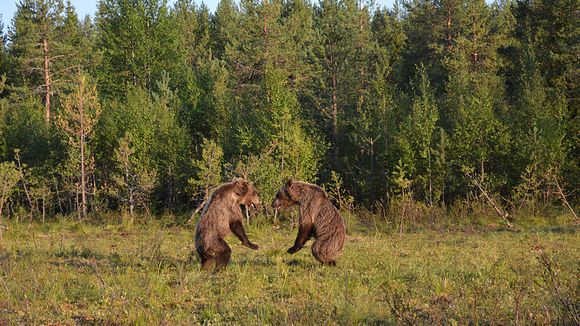Bear-watching attracts tourists to east Finland

Finnish bears are becoming a magnet for foreign tourists — though tour operators have to give way to hunters in August.
“The bears know us. Some of them have been here for 17 years, since we started with bear-watching,” says Markku Määttä, who runs the Martinselkonen wilderness lodge in the municipality of Suomussalmi, near the Russian border.
Määttä says this has been a record-breaking year for bear-watching at Martinselkonen. About 80 percent of his customers come from abroad, some from as far afield as China. Economic ups and downs do not seem to have affected demand.
“In this part of the country, it’s a pretty big deal for us to be able to employ 7-8 people during a recession,” he says.
Learning from bears
Helen Carty from Norfolk, England, received a trip to see Finnish bears as a surprise birthday present.
“We’ve learnt lots about mushroom picking and berries and different kinds of things like that which is absolutely great,” she told Yle. “Finnish people make a great deal of their resources and I think we have a lot of learn about such things in Britain, so that’s very, very nice.”
Baby boom in Suomussalmi
The cycles of nature are clearly visible at Martinselkonen.
Last winter the area’s alpha bear died of old age during hibernation. This spring, the local community was blessed with a large number of cubs.
Some of the females making night-time visits to the feeding spot outside the hide at Martinselkonen have been accompanied by as many as three cubs.
Open season soon
Watching these youngsters is one of the high points for visitors.
“A lot of the time the little cubs were sort of teasing the birds, I can’t you tell which kind of bird it is – very pretty little birds – but they were teasing those birds and chasing them,” says Carty, who visited Suomussalmi with her son Martin.
The bear-watching season ends in early August as bear hunting season begins on August 20 – leading some to question the ethics of habituating wild bears to humans through such feeding practices.



